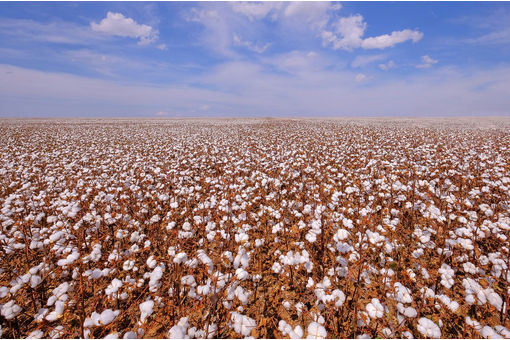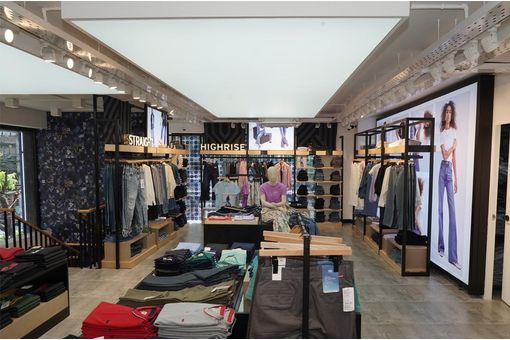Interviews
WTO pulls up Colombia over import duty spat with Panama
28 Nov '15
4 min read
The World Trade Organization has said that the Colombia's decision to impose import duties on textiles, apparel and footwear from Panama was inconsistent with GATT 1994.
Panama had lodged a complaint at the WTO to challenge Colombia over its import tariffs on textiles, apparel and footwear. Panama argued that Colombia's effective import tariff on those products is higher than the maximum allowed under its WTO membership agreement, and that Colombia wrongly imposes specific duties on the imports in the dispute.
A WTO panel refrained from making a finding on whether Article II of the GATT 1994 applies to “illicit trade”. In the Panel's view, such a finding would not be necessary or useful to secure a positive resolution of the dispute. The panel noted that Colombia's compound tariff applies to all imports of the products at issue, without distinguishing whether those imports constitute “licit” or “illicit” trade, or are being used for money laundering.
The panel found that the compound tariff results in duties in excess of the bound rates set forth in Colombia's Schedule of Concessions in certain circumstances, and is, therefore, inconsistent with Article II:1(b), first sentence, of the GATT 1994. The compound tariff was also found to be inconsistent with Article II:1(a) of the GATT 1994, as it accords less favourable treatment than that provided for in Colombia's Schedule of Concessions.
With regard to Colombia's defences, the Panel found that Colombia failed to demonstrate that the compound tariff is a measure necessary to protect public morals within the meaning of Article XX(a) of the GATT 1994. More precisely, the panel found that Colombia failed to demonstrate that the compound tariff was either “designed” or “necessary” to fight money laundering.
The panel also found that Colombia failed to demonstrate that the compound tariff is a measure necessary to secure compliance with Colombia's laws against money laundering within the meaning of Article XX(d) of the GATT 1994. More precisely, the panel found that Colombia failed to demonstrate that the compound tariff was “designed” or “necessary” to secure compliance with Colombia's laws against money laundering.
Finally, the panel found that, in light of the different exemptions to its application, the compound tariff is not applied in a manner consistent with Article XX of the GATT 1994.
This dispute concerns a compound tariff imposed by Colombia to imports of textiles, apparel and footwear, consisting of: (i) a 10 per cent ad valorem component and (ii) a specific component, which varies according to the import value and customs classification of the merchandise.
Panama challenged the compound tariff in certain situations where, in its view, the measure necessarily results in duties in excess of those set forth in Colombia's Schedule of Concessions (35 per cent or 40 per cent ad valorem, depending on the product), in a manner inconsistent with Article II:1(a) and (b), first sentence, of the GATT 1994.
Panama had lodged a complaint at the WTO to challenge Colombia over its import tariffs on textiles, apparel and footwear. Panama argued that Colombia's effective import tariff on those products is higher than the maximum allowed under its WTO membership agreement, and that Colombia wrongly imposes specific duties on the imports in the dispute.
A WTO panel refrained from making a finding on whether Article II of the GATT 1994 applies to “illicit trade”. In the Panel's view, such a finding would not be necessary or useful to secure a positive resolution of the dispute. The panel noted that Colombia's compound tariff applies to all imports of the products at issue, without distinguishing whether those imports constitute “licit” or “illicit” trade, or are being used for money laundering.
The panel found that the compound tariff results in duties in excess of the bound rates set forth in Colombia's Schedule of Concessions in certain circumstances, and is, therefore, inconsistent with Article II:1(b), first sentence, of the GATT 1994. The compound tariff was also found to be inconsistent with Article II:1(a) of the GATT 1994, as it accords less favourable treatment than that provided for in Colombia's Schedule of Concessions.
With regard to Colombia's defences, the Panel found that Colombia failed to demonstrate that the compound tariff is a measure necessary to protect public morals within the meaning of Article XX(a) of the GATT 1994. More precisely, the panel found that Colombia failed to demonstrate that the compound tariff was either “designed” or “necessary” to fight money laundering.
The panel also found that Colombia failed to demonstrate that the compound tariff is a measure necessary to secure compliance with Colombia's laws against money laundering within the meaning of Article XX(d) of the GATT 1994. More precisely, the panel found that Colombia failed to demonstrate that the compound tariff was “designed” or “necessary” to secure compliance with Colombia's laws against money laundering.
Finally, the panel found that, in light of the different exemptions to its application, the compound tariff is not applied in a manner consistent with Article XX of the GATT 1994.
This dispute concerns a compound tariff imposed by Colombia to imports of textiles, apparel and footwear, consisting of: (i) a 10 per cent ad valorem component and (ii) a specific component, which varies according to the import value and customs classification of the merchandise.
Panama challenged the compound tariff in certain situations where, in its view, the measure necessarily results in duties in excess of those set forth in Colombia's Schedule of Concessions (35 per cent or 40 per cent ad valorem, depending on the product), in a manner inconsistent with Article II:1(a) and (b), first sentence, of the GATT 1994.
Popular News
































-Ltd..jpg?tr=w-120,h-60,c-at_max,cm-pad_resize,bg-ffffff)





.jpg?tr=w-120,h-60,c-at_max,cm-pad_resize,bg-ffffff)
.jpg?tr=w-120,h-60,c-at_max,cm-pad_resize,bg-ffffff)






